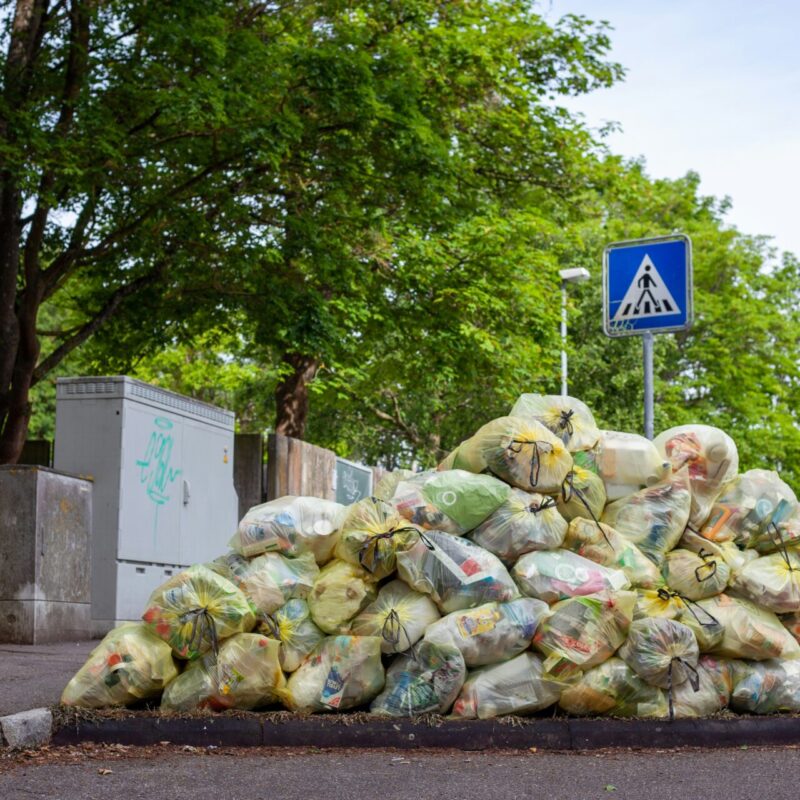Food Waste in Parliament

On October 8th, another meeting of the Subcommittee on Food Security, Eliminating Unfair Practices in Food Trade, and Direct Sales and Retail of Products from Agricultural Farms took place. In our presentation during the meeting, we addressed the most important issues related to combating food waste. The call to action against food waste is also part of the Plant-Based School program.
„In 2022, we approached Minister Anna Moskwa regarding the amendment of the Act on Combating Food Waste, pointing out that the fight against food waste is a key issue in transitioning to a more sustainable food system, as such waste is seen as one of the main symptoms of the current, unsustainable food system. The Supreme Audit Office also recognized the shortcomings of the current law. In its opinion, the regulations aimed at preventing food waste should include significantly more beneficiaries than the strictly defined charitable organizations mentioned in the Act. The monitoring of fees and their collection is also seriously insufficient. These regulations should apply to a much wider range of food sellers—currently, they only include large stores. Local governments, which are responsible for public duties related to social assistance, are entirely overlooked in the Act. There is no provision allowing the transfer of food to them, while it is clear that such a solution would be exceptionally useful and appropriate. It is clear, then, that legislative solutions need improvement. Poland still lacks a comprehensive and effective system for monitoring and preventing food waste at all stages of the food supply chain. Moreover, there is little public awareness of the need to combat food waste and its negative social, environmental, and economic impacts. We propose specific solutions that could be introduced into the Act, which would contribute to creating a sustainable food system:
- Expanding the list of entities eligible to receive food, with particular emphasis on local government units;
- Significantly increasing penalties for failure to fulfill the obligations outlined in the Act;
- Banning practices aimed at making unsold goods unfit for consumption;
- Introducing topics related to combating food waste and the sustainable food system into school curricula. At this point, I would like to ask the Minister about the Ministry’s involvement in working on the core curriculum for health education and the participation of Ministry departments in climate education efforts;
- Allowing the donation of food past its 'best before’ date, food with incorrect labeling (except for incorrect allergen labeling), or damaged packaging, as long as the food is not spoiled;
- Enabling the donation of food for charitable purposes, provided it is of good quality and properly labeled;
- Allowing the transfer of food to appropriate entities that has reached its 'best before’ date, as such food does not pose a health risk (this would also have educational value).
In 2023, we organized expert panels with the participation of the scientific community, local authorities, and representatives from Food Sharing and Jadłodzielnia. The key recommendations included:
- Implementing actions aimed at educating the public about food, for example, by amending the core school curriculum or organizing public-funded educational campaigns to help consumers differentiate between the terms 'best before’ and 'use by’;
- Engaging in consumer communication through educational and informational campaigns to highlight the consequences of overproduction and the benefits of reducing waste and changing our food consumption model;
- Supporting start-ups working on product packaging solutions, such as color-coded labels instead of expiry dates;
- Promoting the idea of food-sharing stations in educational institutions and adjusting catering regulations to ensure access to selected diets and portion differentiation;
- Introducing a legal obligation to monitor food waste in local government-controlled institutions;
- Introducing legal measures that allow for the development of circular strategies, which would provide solutions for preventing food waste or managing already wasted food (such as municipal composting or bio-waste management).
We are pleased that the Ministry is not waiting for EU regulations on sustainable food systems and is already taking action in redesigning and repairing the food system. A sustainable food system can be a response to the key challenges facing consumer safety, but member states must lead this change.”
Credit: Unsplash

